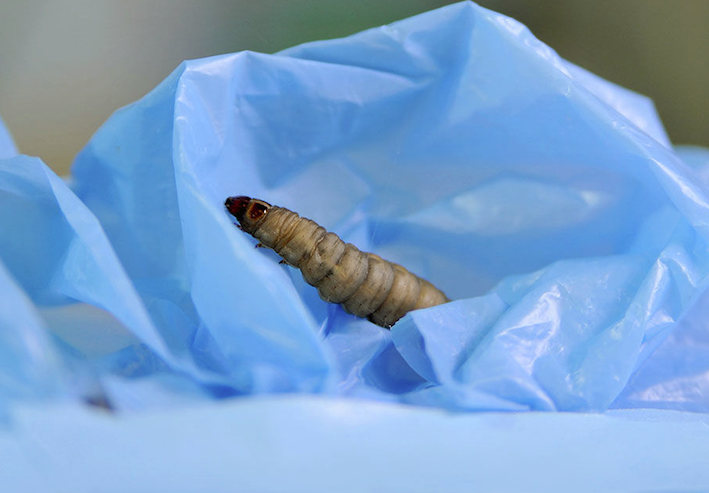An unlikely ally may be coming to our assistance in the shape of a lowly caterpillar. Developmental biologist and amateur beekeeper Federica Bertocchini of the Institute of Biomedicine and Biotechnology of Cantabria in Spain was clearing out one of her hives of the harmful wax moth larvae and placing them in a plastic bag when she noticed something extraordinary. To her surprise the waxworms quickly ate their way out of the bag, leaving it full of holes. It turns out the caterpillars can break down the bag’s polyethylene into ethylene glycol, which can be readily converted into useful substances such as antifreeze. This not only has major repercussions for the 80 million tons of polyethylene that we produce annually and is particularly difficult to break down it could help enormously to stop the chain of events leading microbic particles ending up in the sea.


